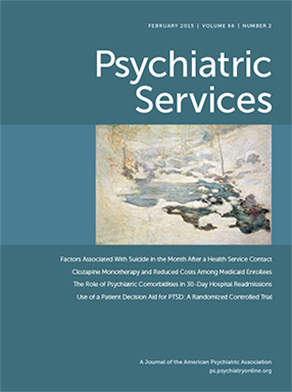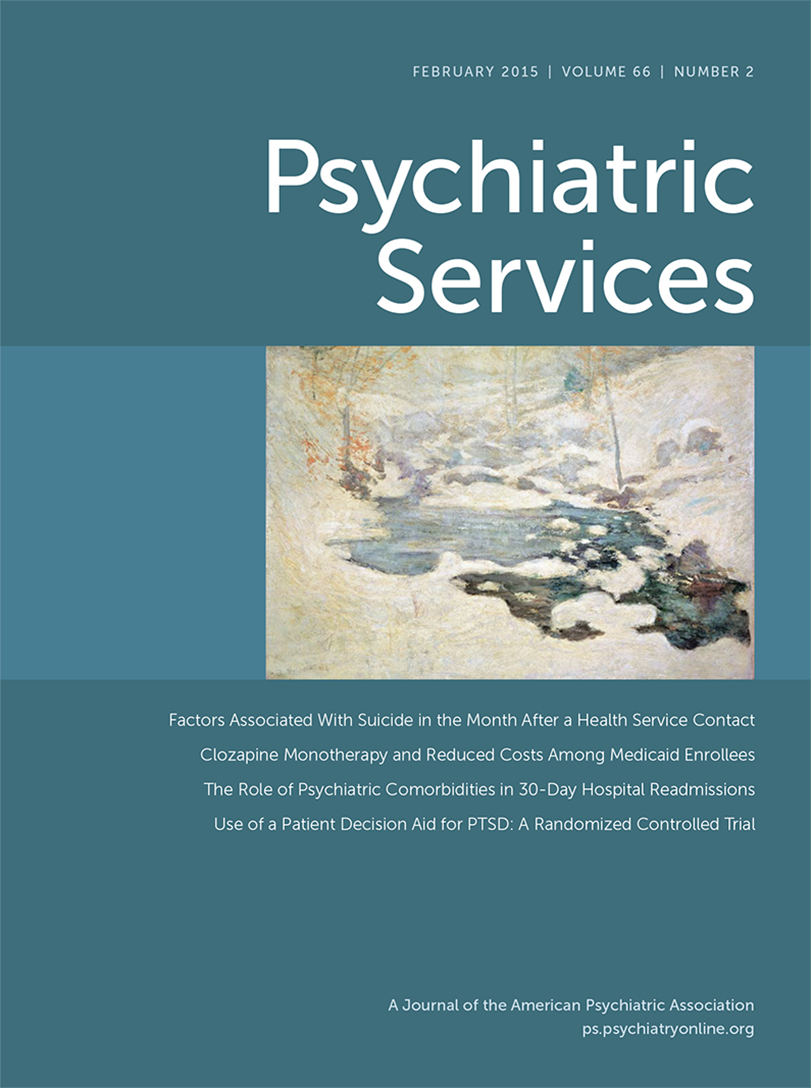To the Editor: Current procedural terminology (CPT) is a list of descriptive terms and codes maintained by the American Medical Association (AMA) for reporting medical services and procedures (
1). Relative value units (RVUs) are assigned to each CPT code (
2). In an update by the AMA in January 2013, changes were made to more fully reflect the complexity of psychiatric services and to move psychiatric documentation and billing toward the medical model used in other specialties (
3,
4). “Add-on” psychotherapy codes were made available for visits in which psychotherapy was conducted. Other add-on codes were provided for complexity of the service (
4).
In our clinic, attending psychiatrists and nurse practitioners, but not residents and fellows, attended two training sessions about how to implement the new coding system and were provided incentives on the basis of their RVU production. The effects of these changes on billing in our ambulatory psychiatry clinic (part of a major academic medical center) were measured across three clinician groups providing both medication management and psychotherapy: attending psychiatrists (N=25), residents and fellows (N=27), and psychiatric nurse practitioners (N=8). We calculated the average RVUs per visit billed by each clinician during one month before (t0), one month after (t1), and six months after (t2) the new system was implemented. All periods predated the increase in RVU values for many CPT codes that took effect January 2014. Because clinicians in this setting may differ in the percentage effort assigned to the ambulatory clinic and the number of patients seen in the clinic each month, a weighted t-test (number of visits as the weight) was conducted to compare mean RVUs per visit for the three time points for each group and for the entire clinic. The weighted t-test reduced the effects of differences in individual clinicians’ clinic time on the aggregate measure of RVUs per visit generated for each group.
There was a significant increase in mean RVUs per visit between t0 and t1 among attending psychiatrists (–.469, p<.001) and nurse practitioners (–.515, p=.003), which persisted at t2. For residents and fellows, no significant difference was noted between the three time points. For all groups combined, a significant increase was noted from t0 to t1 (–.324, p<.001), which persisted at t2. The mean number of visits for each group did not differ across the time points. [A table in an online data supplement presents the results of this analysis.]
Our analysis showed significant increases in production of RVUs per visit among faculty staff but not among trainees. We believe the differences between groups reflect variability in our education and training and incentive efforts. Nevertheless, the results suggest that the new coding system facilitated billing that was more reflective of the actual mental health services performed by clinicians. This is important given the long-standing limitations in reimbursement for mental health services. Results suggest the effectiveness of education and incentives in changing coding behavior and the stability of this effect over the six months after training.
Acknowledgments
The authors thank Michelle Kaston for her role in the development of this project.
The authors report no financial relationships with commercial interests.

